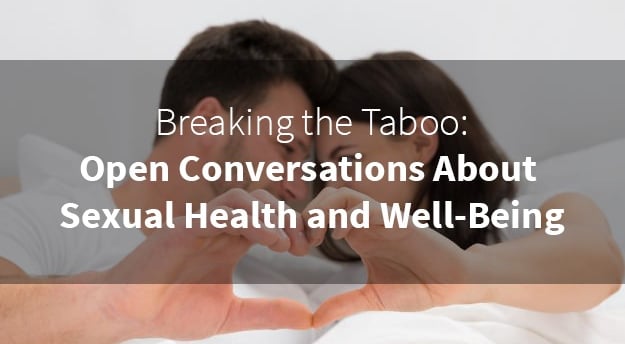Claim your free toy from Lust Collection's grand opening gift!
Breaking the Taboo: Open Conversations About Sexual Health and Well-Being
Sexual health and well-being are critical components of overall health, yet they remain shrouded in stigma and taboo. Open conversations about sexual health can lead to better understanding, improved well-being, and healthier relationships. Breaking the taboo involves challenging societal norms, fostering open dialogue, and embracing a more informed and accepting approach to sexual health. Here’s how you can start these important conversations and why they matter.
SEXUAL HEALTH TIPS
Ms. Lusty
9/11/20243 min read


1. Understanding the Importance of Open Dialogue
Discussing sexual health openly is crucial for several reasons. It promotes awareness, dispels myths, and encourages preventive measures. When people are informed about sexual health, they are more likely to engage in safe practices, seek timely medical advice, and support one another in maintaining sexual wellness.
Tip: Recognize that open dialogue about sexual health is essential for personal and collective well-being. Approach these conversations with the intention of sharing knowledge and fostering understanding.
2. Challenging Societal Norms
Sexual health is often surrounded by cultural and societal taboos, making it difficult for people to discuss it openly. These taboos can lead to misinformation, stigma, and a lack of access to essential information. By challenging these norms and promoting open conversations, we can create a more informed and accepting society.
Tip: Challenge stereotypes and misconceptions about sexual health by educating yourself and others. Share reliable information and engage in discussions that promote a healthier perspective on sexual well-being.
3. Creating Safe Spaces for Discussion
Creating a safe and supportive environment is key to encouraging open conversations about sexual health. This can be done by fostering a non-judgmental atmosphere where individuals feel comfortable sharing their experiences, questions, and concerns without fear of embarrassment or ridicule.
Tip: Establish safe spaces for dialogue, such as support groups, educational workshops, or one-on-one conversations. Encourage open-mindedness and respect for differing perspectives.
4. Educating Yourself and Others
Education is a powerful tool in breaking the taboo around sexual health. By staying informed about sexual health topics and sharing accurate information, you can help dispel myths and promote healthier attitudes and behaviors. This includes understanding sexual anatomy, STIs, contraception, and emotional aspects of sexual relationships.
Tip: Seek out reputable sources of information and resources on sexual health. Share what you’ve learned with others and encourage ongoing education and awareness.
5. Encouraging Regular Health Check-Ups
Regular health check-ups are essential for maintaining sexual well-being. Encouraging individuals to prioritize routine screenings and consult healthcare providers can help identify and address issues early on. Open discussions about the importance of these check-ups can also reduce the stigma associated with seeking medical advice.
Tip: Advocate for routine sexual health check-ups and screenings. Normalize these practices by discussing them openly and emphasizing their importance for overall health.
6. Addressing Common Sexual Health Issues
Many people face sexual health issues, such as STIs, sexual dysfunction, or hormonal imbalances, but may feel reluctant to discuss them due to embarrassment or fear. Addressing these issues openly can lead to better understanding, support, and treatment options.
Tip: Approach discussions about sexual health issues with empathy and support. Provide information on available treatments and encourage seeking professional help when needed.
7. Promoting Comprehensive Sexual Education
Comprehensive sexual education is essential for equipping individuals with the knowledge they need to make informed decisions about their sexual health. This education should cover topics such as consent, healthy relationships, safe sex practices, and emotional aspects of sexuality.
Tip: Support and advocate for comprehensive sexual education programs in schools and communities. Ensure that these programs provide accurate, inclusive, and age-appropriate information.
8. Supporting Sexual Health and Well-Being in Relationships
Healthy relationships are integral to sexual well-being. Open communication, mutual respect, and understanding between partners contribute to a positive and fulfilling sexual experience. Encouraging discussions about sexual health within relationships can strengthen connections and improve satisfaction.
Tip: Foster open communication about sexual health and desires with your partner. Address any concerns or questions together and work towards maintaining a healthy and respectful relationship.
Conclusion
Breaking the taboo around sexual health involves promoting open, honest conversations and challenging societal norms that contribute to stigma and misinformation. By creating safe spaces for discussion, educating yourself and others, encouraging regular health check-ups, and addressing common issues, we can foster a more informed and accepting approach to sexual well-being.
Open dialogue about sexual health not only enhances individual well-being but also contributes to a healthier, more supportive society. Embrace these practices to break down barriers, normalize discussions, and prioritize sexual health and well-being for everyone.
